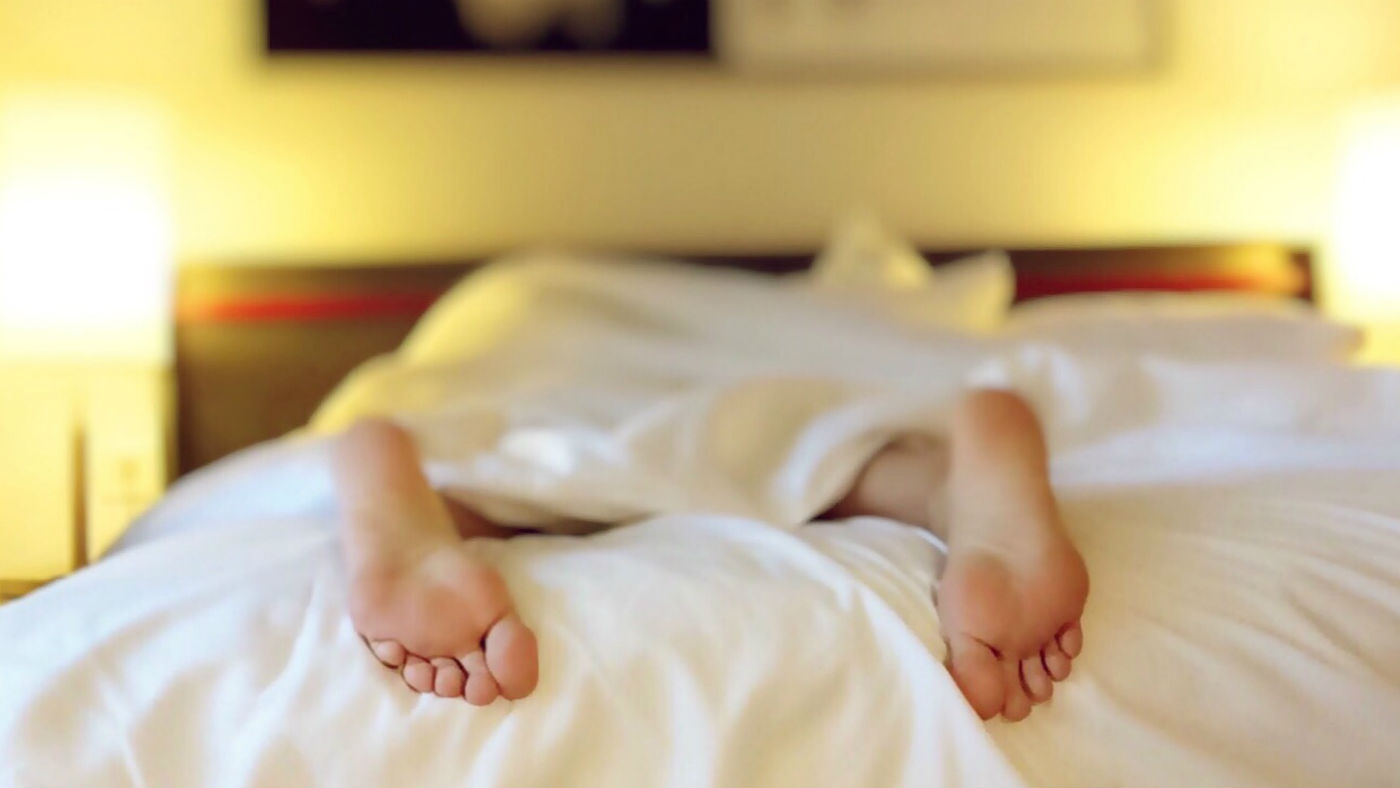Why am I always tired? Nine common causes of fatigue
Reasons range from simply not getting enough sleep to illnesses such as anaemia

A free daily email with the biggest news stories of the day – and the best features from TheWeek.com
You are now subscribed
Your newsletter sign-up was successful
For most of the working world, tiredness is a way of life - but it needn’t be.
According to experts, simple lifestyle changes may be all that is needed to boost the energy levels of people suffering fatigue. Some causes of tiredness are obvious and easy to remedy, although it can also be a symptom of illness.
Here are some of the main causes, with tips on how to deal with them:
The Week
Escape your echo chamber. Get the facts behind the news, plus analysis from multiple perspectives.

Sign up for The Week's Free Newsletters
From our morning news briefing to a weekly Good News Newsletter, get the best of The Week delivered directly to your inbox.
From our morning news briefing to a weekly Good News Newsletter, get the best of The Week delivered directly to your inbox.
Not sleeping enough
“As obvious as it sounds, it still bears repeating: it may simply be that you’re not getting enough sleep,” says US-based lifestyle site Bustle.
Surveys suggest that Britons are particularly bad sleepers. An Aviva Health study found that 38% of adults in the UK feel they don’t get the right amount of shut-eye, the worst sleep score recorded in surveys conducted across a total of 14 countries.
The optimal amount of sleep varies from person to person but is roughly seven to nine hours, according to the National Sleep Foundation. Tips offered by the organisation include avoiding eating too soon before bedtime, and keeping phones and laptops out of your bedroom.
A free daily email with the biggest news stories of the day – and the best features from TheWeek.com
Lack of exercise
Just a modest amount of exercise may produce rapid results.
In a University of Georgia study, sedentary but otherwise healthy adults who began exercising lightly for 20 minutes, three times a week, reported feeling less fatigued and more energised after six weeks.
Regular exercise makes your heart and lungs work more efficiently, delivering oxygen and vital nutrients around the body, promoting better health and deeper sleep.
Bad gut health
If you’re suffering sleep problems, it may be down to your microbial make-up. “The friendly bacteria within our gut, known as our gut microflora, are vitally important to our well-being, including our sleep. In fact, they produce hormones and chemical neurotransmitters that help calm and relax us,” says Bustle.
Some doctors recommend using a probiotic to help restore the natural balance of bacteria in your gut.
Anaemia
One of the most common medical reasons for feeling constantly run down is iron-deficiency anaemia, says the NHS website.
The condition can leave you lacking in energy, but is easily diagnosed with a blood test and may be resolved by taking iron supplements and eating more iron-rich foods.
Dehydration
By the time you feel thirsty, you’re already dehydrated, since our thirst mechanism lags behind our actual level of hydration, according to doctors.
Even mild dehydration can make you feel tired or lethargic, as your blood volume lowers, which means you don’t get as much blood to your brain, and your heart has to pump harder.
Planning when you drink just as you plan your meals is a good way to ensure you get enough fluids throughout the day.
Thyroid issues
The thyroid is a gland that regulates the metabolism, which controls how fast the body converts fuel into the energy needed to power the body.
Having an underactive thyroid – when it’s not making enough of the hormone thyroxine – “is a surprisingly common cause of unexplained fatigue, especially in middle-aged women”, says the Daily Mirror.
Other symptoms of a thyroid condition include excessive thirst, weight gain and feeling cold.
Drinking too much coffee
Although caffeine can provide you with a much-needed energy boost, it might also be the cause of your tiredness.
Dr Chidi Ngwaba, director of the London-based Lifestyle Medicine Clinic, told the Mirror: “Our brain chemistry doesn’t like being interfered with by stimulants, so it releases chemicals to dampen down the alert response.”
Coffee is also a serious sleep disrupter. A study published in the Journal of Clinical Sleep Medicine revealed that consuming caffeine even six hours prior to bedtime can disrupt sleep.
Depression
The World Health Organization estimates that more than 300 million people worldwide suffer from depression. As well as sadness and anxiety, depression can also cause physical symptoms including fatigue and insomnia.
Sufferers may require treatment such as therapy or medication, which can help alleviate symptoms.
Anxiety
Anxiety and stress can impact sleep patterns, and have been found to significantly lower levels of deep sleep.
Making lists of your concerns before bed can help, so you’re not going over them in your head all night. Seeking anxiety treatment is another option.
-
 How the FCC’s ‘equal time’ rule works
How the FCC’s ‘equal time’ rule worksIn the Spotlight The law is at the heart of the Colbert-CBS conflict
-
 What is the endgame in the DHS shutdown?
What is the endgame in the DHS shutdown?Today’s Big Question Democrats want to rein in ICE’s immigration crackdown
-
 ‘Poor time management isn’t just an inconvenience’
‘Poor time management isn’t just an inconvenience’Instant Opinion Opinion, comment and editorials of the day